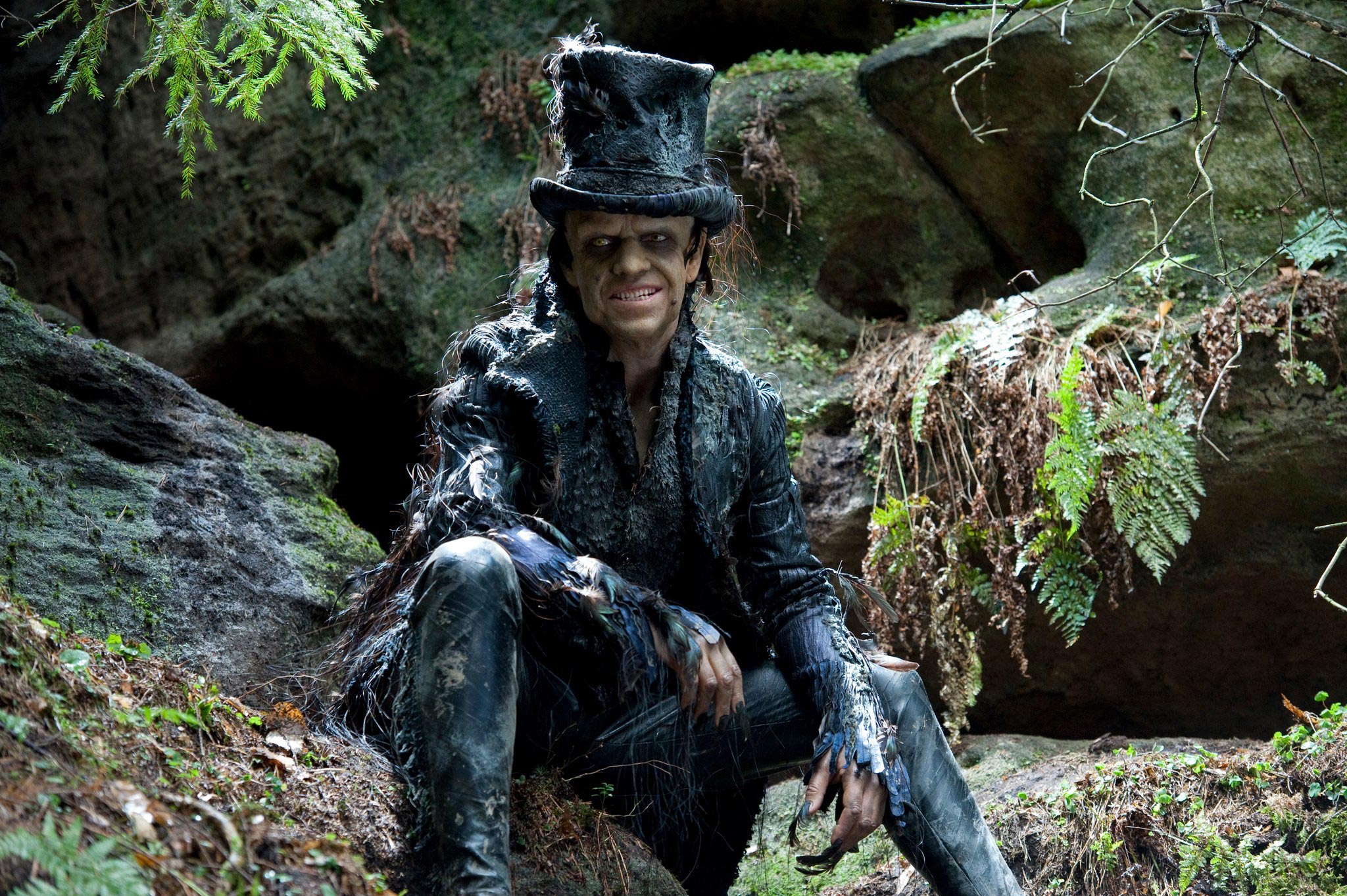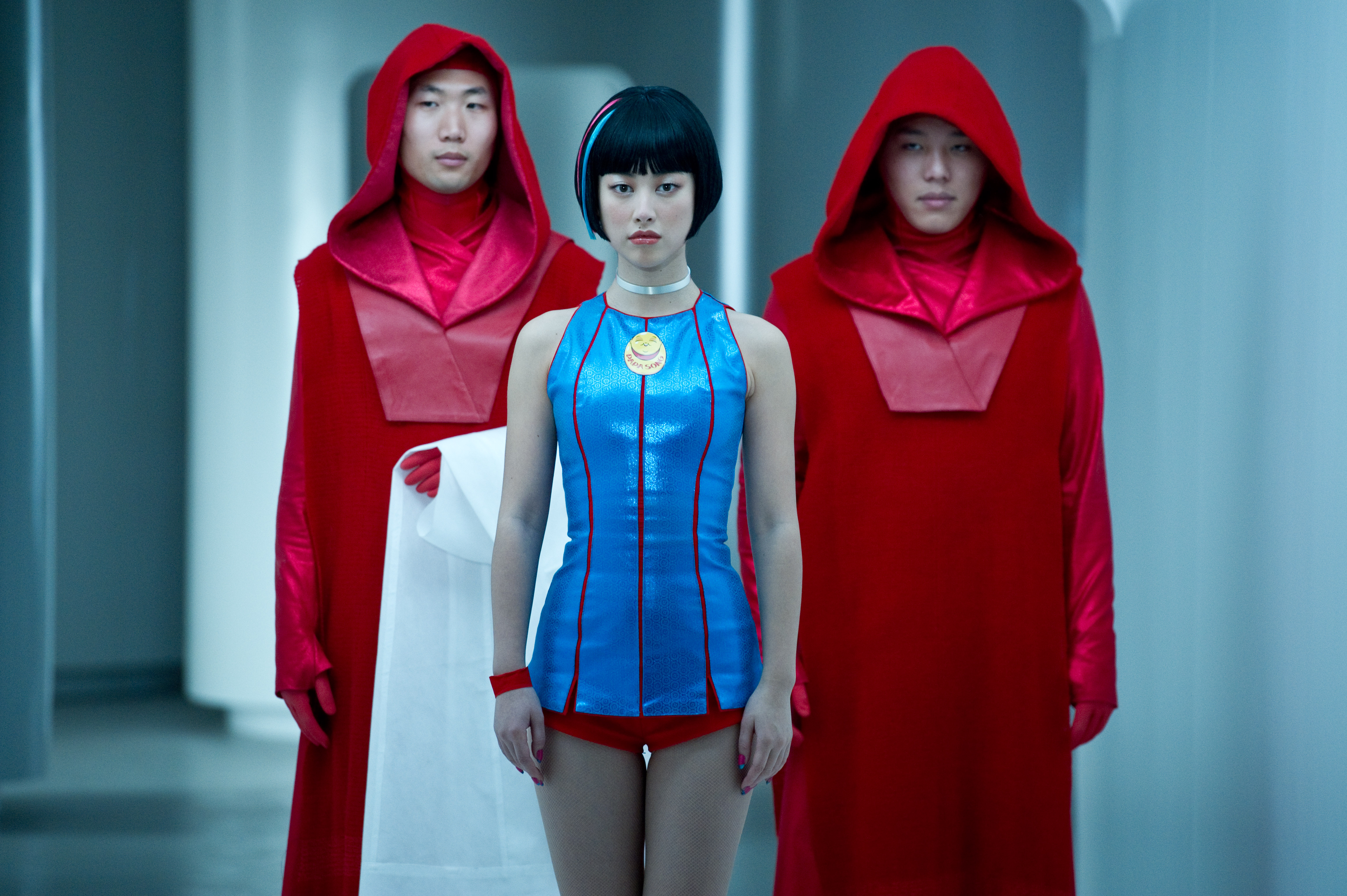Cloud Atlas

Filmmakers
find it attractive to be ambitious. It is a luxury of cinema, often
producing an epic scale or a multilayered story, reflecting numerous
threads and character. However, the separation between art and mere
grandiosity is the clarity of the director's intentions through the
formal control of their work. How one uses the cinematic language to
express and solve a problem is the heart of great filmmaking.
Andy and
Lana Wachowski are rarely short of ambition but their recent films have
been bloated and undisciplined. They ended their Matrix trilogy
dismally and their last film Speed Racer, made over four years
ago, was a financial and critical dud. As filmmakers they lack
restraint. They over-stylise their work, relying heavily on technique
estranged from meaning. Their love of geek culture traps them into
imitating anime, Manga and kung fu films, but without thematic, tonal or
stylistic cohesion.

As people
they are difficult to gauge too as they have been notorious recluses and
deliberately media shy. Only recently did they lift the veil from their
personal lives because they were making Cloud Atlas with a third
director Tom Tykwer (Run Lola Run). They also opted to address a
deep personal issue. Once known as Larry, Lana Wachowski transitioned
from a man into a woman, following a sex change.
Transgender is fascinating in the context of the Wachowski's entire
filmography. The five films they've directed have used avatars to hide
the identities and motives of their central characters, or to subvert
the conventional gender roles of archetypal characters. As a
semi-autobiographical element in their work, it is one of the more
intriguing aspects of their films.
Adapting
British author David Mitchell's, Cloud Atlas takes avatars and
hidden identities to extremes and reaches a new height of tedium. It is
a film that is as ambitious as the Wachowski's have ever done, told over
multiple timelines, with the same actors playing different characters in
makeup.
But the
thematic spine that adjoins all of these stories is lost in an opaque,
perpetually interrupted narrative. At nearly three hours long,
the film is intriguing and conceptually unique but it coasts too
regularly on its own deliberate ambiguity and pretences of telling a
story, without ever elucidating the cryptic details of each universe.
The plot
is a jumble of six threads that are thinly stretched and often terribly
imbalanced. In 1849 a young man (Jim Sturgess) is helping a slave
onboard a ship and defending him from the other crew members. On an
island, a man (Tom Hanks) sees a spaceship land near his village and
then a mysterious woman (Halle Berry) helps him to defend his people
from barbarian warriors.

In Britain
during the 1930s, Robert is a gay musician (Ben Wishaw) determined to
write music with Vyvyan (Jim Broadbent), a grumpy but famous composer.
He constructs a piece called The Cloud Atlas Sextet. In the 1970s a
reporter (Halle Berry again) is investigating a secret report about a
nuclear reactor. 2012: Jim Broadbent also plays Timothy, a publisher
intimidated by a criminal who has written a book and is now threatening
him. He asks his brother for help and is sent to a nursing home,
overseen by an evil nurse (Hugo Weaving). In the year 2144, a cloned
restaurant waitress (Doona Bae) makes a discovery about humanity in an
oppressive futuristic society.
Dividing
the stories between the directors has resulted in a lack of equal weight
and value. Jim's story feels thinly stretched and uneventful compared to
more memorable and extensive threads like the nursing home. There are
striking images, like a satellite dish unfolding itself, but the smaller
scope of the vintage periods reduces the visual flair. The only
moderately exciting sequence is Timothy's escape plan. It outshines an
emotionless future setting, derivative of Blade Runner and The
Matrix, which would have been earmarked as the visual centrepiece.

Also like
The Matrix, the same florid and sometimes pretentious
philosophical dialogue haunts the film too. Ideas about the afterlife
and people being reborn under different regimes are suffocated by
overwritten lines like: "one can transcend any convention if one can
conceive doing so." The dialogue touches on everything from consumerism
to slavery but are these issues ever adjoined or resolved?
The
intercutting, non-linear structure fails to answer this question due to
the impatience of the editing, culling the rhythm and fluidity. Threads
are interrupted by pointless jump cuts to other universes, never long
enough to complement each other in meaning. There is also a heavy
reliance on gimmicks that distracts from personal investment in the
stories. What is the significance of Hugo Weaving playing not only a
hitman, but a green monster in a top hat and a female nurse? Who are
these characters?
Video,
Audio & Special Features
Video and
audio for this release by Warner is exception and could be considered
reference material. The colour palette is vibrant and the images are
crystal clear which is a staple of the
Wachowski
brothers. Audio is equally impressive thanks to the DTS-HD Master Audio
track. For fans of the film, the special features are in-depth and
really give you a great snapshot of the creation of this ambitious yet
overtly complicated film. This release also comes with the Ultra-Violet
copy which means you can play this on a variety of devices such as your
PC, iPhone or some other portable device.
Final
Thoughts
Critically, when the narratives are formally compared as an expression
of karma and reincarnation, the juxtaposition is vacuous. The technique
serves only to enhance the velocity of the chase scenes, instead of a
synonymous theme. No matter how lofty the ambition, this is fatal in a
film addressing interconnections.
Special
Features